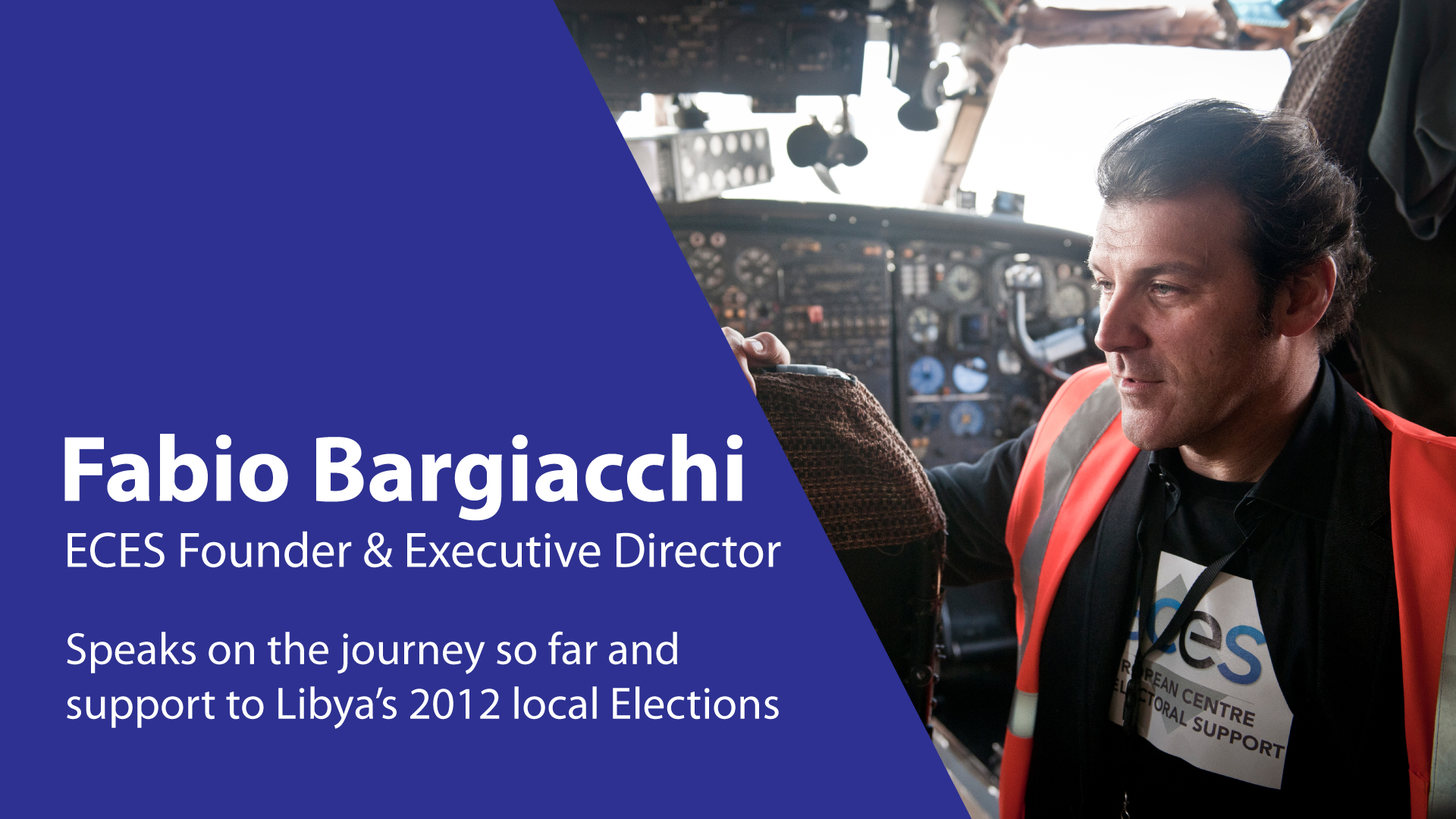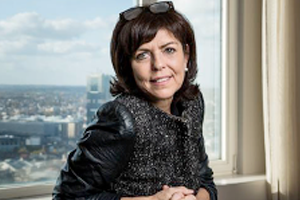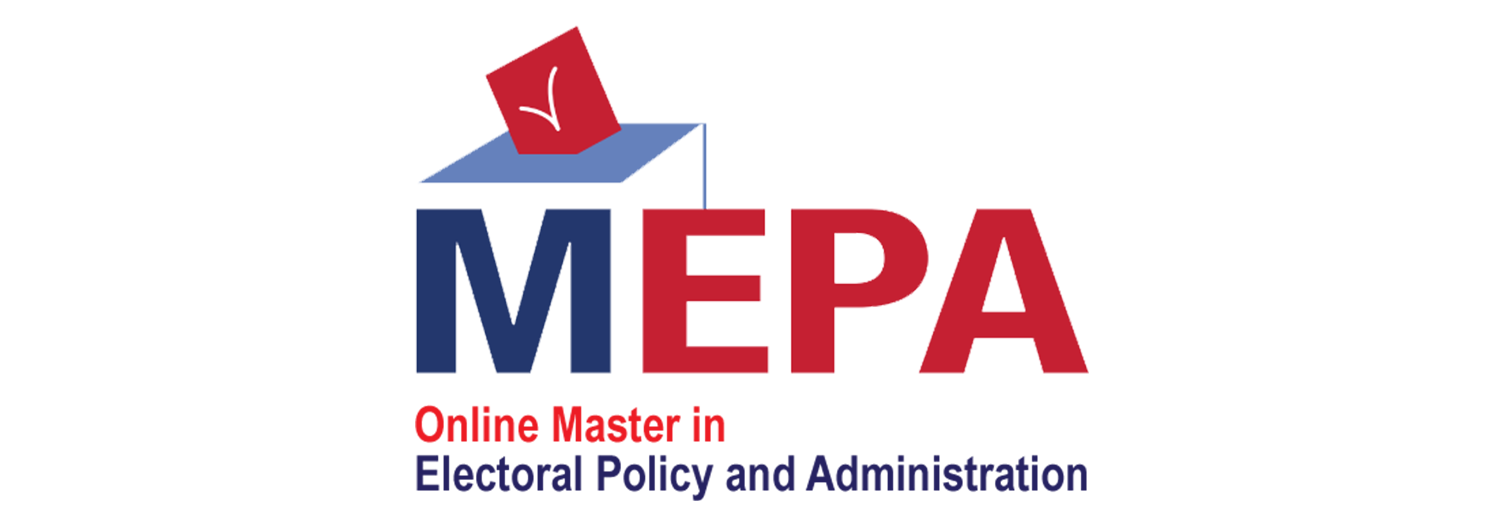 ECES was established in September 2010 and launched in December of the same year when Abbot Apollinaire Mulhongo Malu Malu, the first President of ECES management board, was invited by the European Commission to attend the European Development Days.
ECES was established in September 2010 and launched in December of the same year when Abbot Apollinaire Mulhongo Malu Malu, the first President of ECES management board, was invited by the European Commission to attend the European Development Days.
During this occasion, the creation of ECES was announced. Malumalu explained that a number of senior electoral experts and practitioners, led by Fabio Bargiacchi, identified the need to establish a European based not for profit organisation specialised in providing electoral support consistent with European values and EU policies. He explained that ECES would work in favour of beneficiary countries partner of the EU and ensure ownership, cost effectiveness and visibility of the cooperation between the EU, its Member States and the beneficiary country.
As a matter of facts, ECES emerged as an idea of a European organisation specialising in electoral support to be at the service of the EU and EU Member States long before being officially founded in 2010. The idea and initiative came from Fabio Bargiacchi back in 1997, when he participated in an OSCE mission in Bosnia. There, he realised that USAID had its own organisation dedicated to implementing electoral assistance via an established cooperative agreement since 1995, known as the CEPPS (Consortium for Elections and Political Process Strengthening). The EU, however, did not have such an organisation but was instead funding the OSCE and the United Nations.
 Fabio Bargiacchi co-opted to this cause the late Abbot Malu Malu as well as all other members of the board, who shared similar ideas about the need to establish a European Centre for Electoral Support embodying the views and values of the EU and EU Member States as donors. Both men also sought to integrate the views of the beneficiaries’ countries in terms of visibility, steering of projects, flexibility and cost effectiveness to dedicate more funds to activities instead of administration and human resources costs.
Fabio Bargiacchi co-opted to this cause the late Abbot Malu Malu as well as all other members of the board, who shared similar ideas about the need to establish a European Centre for Electoral Support embodying the views and values of the EU and EU Member States as donors. Both men also sought to integrate the views of the beneficiaries’ countries in terms of visibility, steering of projects, flexibility and cost effectiveness to dedicate more funds to activities instead of administration and human resources costs.
In July 2011, Fabio Bargiacchi was entrusted by the members of ECES management board to lead the organisation ’s management unit as its Executive Director. The same year, Monica Frassoni was appointed as Vice President of ECES of which she later took over the Presidency when Abbot Malu Malu resigned due to commitments in his home country, the Democratic Republic of Congo, and to health reasons that unfortunately costed his life a few years later.
In her function of Vice President and President, Monica, plays a fundamental role in enhancing the political visibility of ECES with donors and beneficiaries and in reinforcing ECES strategic engagement within EU Institutions at the highest level.
As one of EU’s top influencer and top 100 Global Thinker Monica brought over 30 years’ experience in European and foreign affairs, proactively contributing in the establishment and successees of ECES also via her regular activity as speaker and lecturer in important academic fora and large public events, focusing on democracy and participation of civil society (notably women and youth, in decision-making at all levels) and also on sustainable energy and energy savings, green transformation of the global economy and society to fight exclusion and climate change.
 As a former Member of the European Parliament (for two mandates) and later as Co-chair of the European Green Party, Monica’s passion in support of human rights, women political engagement and democracies constantly reinforced ECES growth and visibility. Bringing on board her past experience as Chief Observer in two EU Electoral Observation Mission (EOMs) Bolivia and Venezuela, Monica advises and assists in all ECES activities, notably in terms of follow-up of the implementation of the recommendations of EU Election Observation Missions in to electoral assistance activities.
As a former Member of the European Parliament (for two mandates) and later as Co-chair of the European Green Party, Monica’s passion in support of human rights, women political engagement and democracies constantly reinforced ECES growth and visibility. Bringing on board her past experience as Chief Observer in two EU Electoral Observation Mission (EOMs) Bolivia and Venezuela, Monica advises and assists in all ECES activities, notably in terms of follow-up of the implementation of the recommendations of EU Election Observation Missions in to electoral assistance activities.
Monica Frassoni bring to ECES also her experience as member of the board of trustees of “Friends of Europe” (a leading think tank that works to promote a more inclusive, sustainable and forward-looking Europe) and of the “Foundation ceci n’est pas une crise”, created in 2013 in Belgium to respond to the challenges of cultural and identity populism.
ECES embarked on its first real large endeavor at the beginning of February 2012 by delivering face-to-face and distance training to the ten electoral management bodies of the ECCAS (Economic Community of Central African States). ECES was also awarded a project to support the local elections in post-revolution Libya in two stages that entailed an operational phase and a dialogue process phase, focusing on reconciliation of the war-torn country.
Ten years down the line, ECES is now a well-established organisation that is proud of its roots and the course it has taken. It has overcome many challenges and boasts numerous milestone achievements. Our quest to deliver electoral assistance worldwide while promoting European values through a European distinct delivery mechanism is constantly growing.
As such, ECES is committed to continuing contributing to democratic and electoral processes around the world and, together with the United Nations Development Programme and International IDEA, nowadays stands among the three most important partners of the EU for the implementation of EU electoral support.
In September 2020 ECES welcomed in its team Joëlle Milquet, a former Belgium Deputy Prime Minister, former Minister of Defense, and Special Adviser to President of the European Commission, Jean-Claude Juncker for the compensation of victims of crime.
Appointed by ECES Board to coordinate the Strategic & Advisory Committee, Joëlle is bringing 30 years of political experience to support the implementation of ECES Strategic Planning 2020-2023 the Management Board and Management Unit of ECES. The Strategic & Advisory Committee gathers senior international professionals to provide guidance and support to ECES strategies and further expand its scope and to the existing projects.
________________________________________________
"Our strengths lie in the deep knowledge of electoral matters coupled with extensive comparative experiences in project management but also and foremost in the passion and commitment we put in our work to support electoral processes worldwide. We are convinced that this is our call and we feel a profound fulfilment to give our contribution to the work that the international community is doing in terms of democratisation via partnerships with the EU and its Member States, peer exchanges and south-south collaboration.” - Fabio Bargiacchi
“My dream is that elections become a celebration of democracy everywhere and especially in Africa, where often they are a drama. At the end of each election organized in a credible, transparent and cost-effective manner, all parties and candidates should accept the results and the choice of the electorate. Those who lose the elections should play their watchdog role over the Government and prepare to challenge the majority for the next elections following the rules of democracy rather than through violence.” - Abbot Apollinaire Malu Malu








